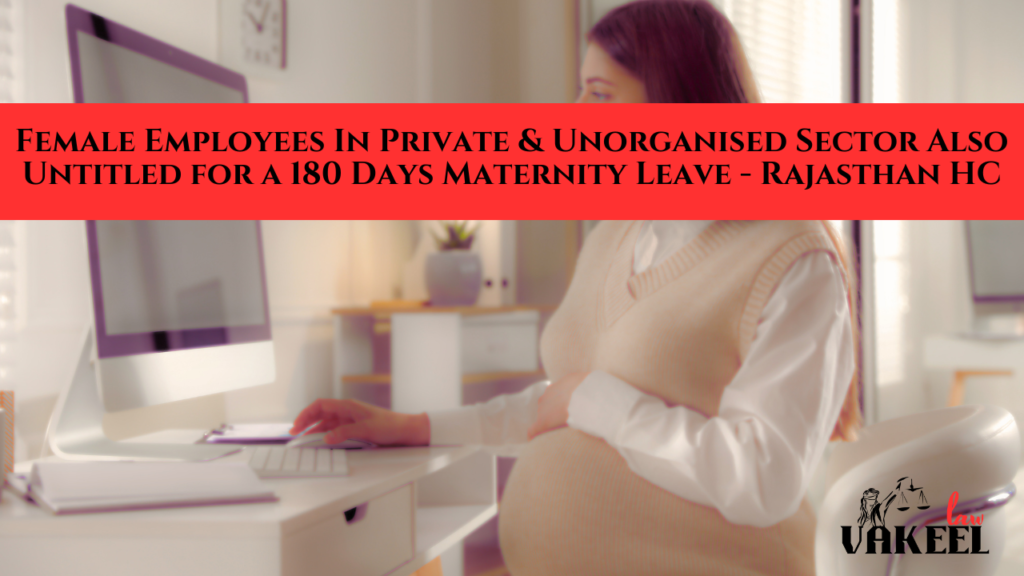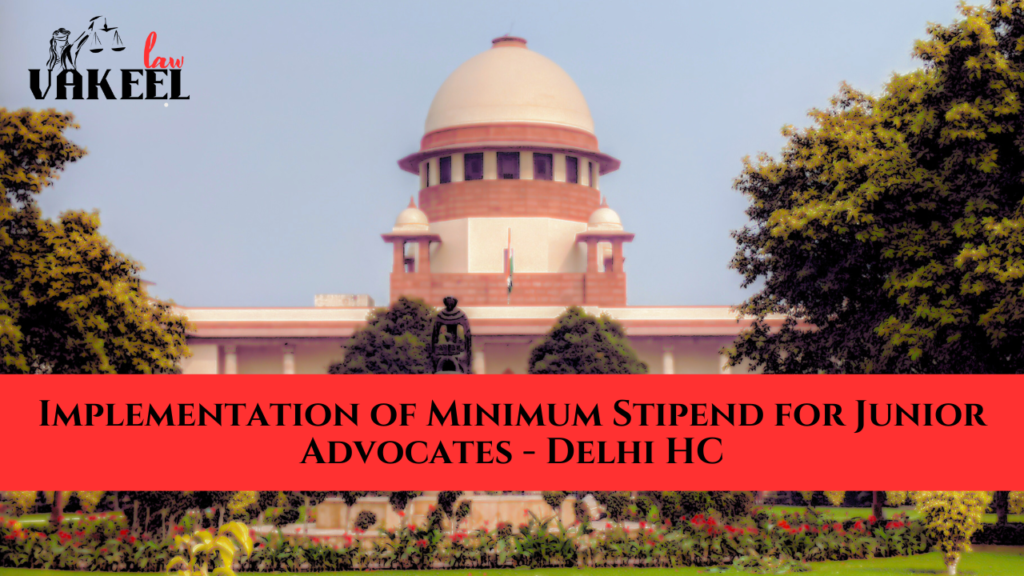In a landmark judgment in September 2024, the Rajasthan High Court extended the entitlement of 180 days of maternity leave to all female employees in the state, irrespective of their nature of employment. This progressive ruling underscores the importance of maternity benefits as a fundamental right under Article 21 of the Indian Constitution, which guarantees the right to life and personal liberty.
The ruling came in the case of Minakshi Chaudhary v. Rajasthan State Road Transport Corporation and Another, where the court decisively declared that all female employees, regardless of whether they were employed on a permanent, temporary, contractual, or any other basis, are entitled to 180 days of maternity leave.
The Court’s Ruling: 180 Days of Maternity Leave
The Rajasthan High Court not only recognized the need for adequate maternity leave for female employees but also acknowledged the fundamental rights involved. The court ordered that:
- All female employees are entitled to 180 days of paid maternity leave, regardless of the nature of their employment.
- If granting maternity leave is not possible due to specific circumstances, employers must compensate employees by providing 90 days’ salary in lieu of the leave.
This ruling is a significant step forward in enhancing gender equality in the workplace, and the court urged both the state and central governments to ensure compliance by directing all sectors to amend their provisions to align with this new directive.
Maternity Benefits: A Fundamental Right
One of the most important aspects of this judgment is the recognition of maternity benefits as a fundamental right under Article 21 of the Constitution. The court emphasized that maternity leave is essential not only for the well-being of the mother but also for the health and development of the child.
The decision highlighted that denying proper maternity leave impacts both the mother’s and child’s health, and it directly affects a woman’s ability to balance work and motherhood. By guaranteeing 180 days of leave, the court ensured that mothers could adequately care for themselves and their newborns without the fear of losing their livelihoods.
Promoting Gender Equality in the Workplace
This ruling represents a crucial step towards achieving gender equality in workplaces. Women often face the dual burden of professional responsibilities and caregiving, with many suffering from inadequate maternity benefits. By ensuring that all female employees are granted 180 days of maternity leave, the Rajasthan High Court has created a more level playing field for women, allowing them to balance their careers with their roles as mothers.
The court’s decision also addresses the broader issue of job security for women, protecting their employment status during pregnancy and after childbirth. This move ensures that women do not have to choose between their careers and their family responsibilities, promoting a more inclusive and equitable work environment.
Maternity Leave: Safeguarding Health and Livelihood
The High Court emphasized that maternity leave is not just a benefit but a necessity that directly impacts the health of the mother and child. Adequate time for recovery post-childbirth and for nurturing the newborn is critical for both physical and emotional well-being. By granting 180 days of maternity leave, the court has ensured that women are not forced to return to work prematurely, thus safeguarding their health and that of their children.
Additionally, by mandating either leave or 90 days’ salary as compensation, the court has protected the financial security of women who might otherwise be compelled to work under physically challenging conditions.
A Significant Precedent for Future Cases
This decision sets a powerful precedent for other states and sectors across India. The ruling has the potential to influence policies nationwide, particularly in industries and sectors where female employees have historically been denied adequate maternity leave. It is now imperative that both state and central governments work towards ensuring that this ruling is implemented across the board, making 180 days of maternity leave the standard.
Conclusion
The Rajasthan High Court’s ruling in the case of Minakshi Chaudhary v. Rajasthan State Road Transport Corporation and Another marks a major milestone in women’s rights and workplace equality. By granting all female employees the right to 180 days of maternity leave, the court has not only safeguarded the health and well-being of mothers and their children but also promoted gender equality in the workforce.
This ruling is a reminder that maternity benefits are not a privilege but a fundamental right that should be accessible to all working women, ensuring that they are treated with dignity and respect during one of the most critical phases of their lives.
For legal assistance or to know more about maternity benefits and employee rights, contact us at Vakeel Law, where we stand committed to protecting your rights.




